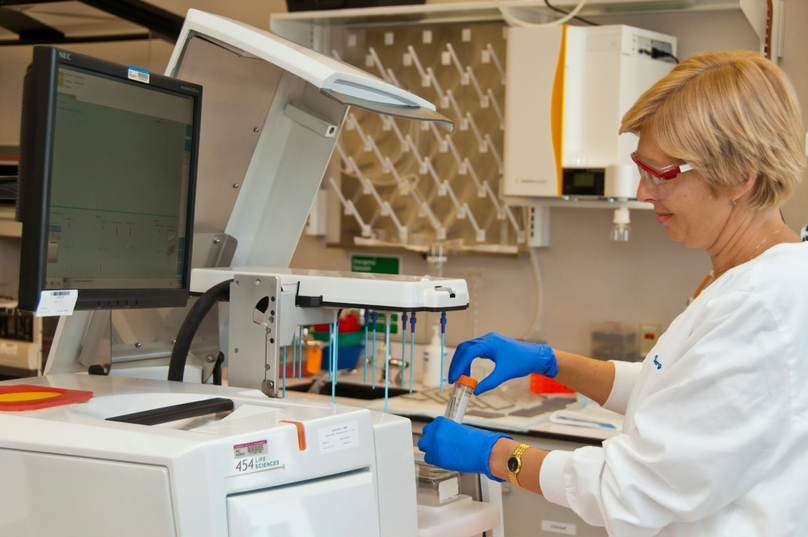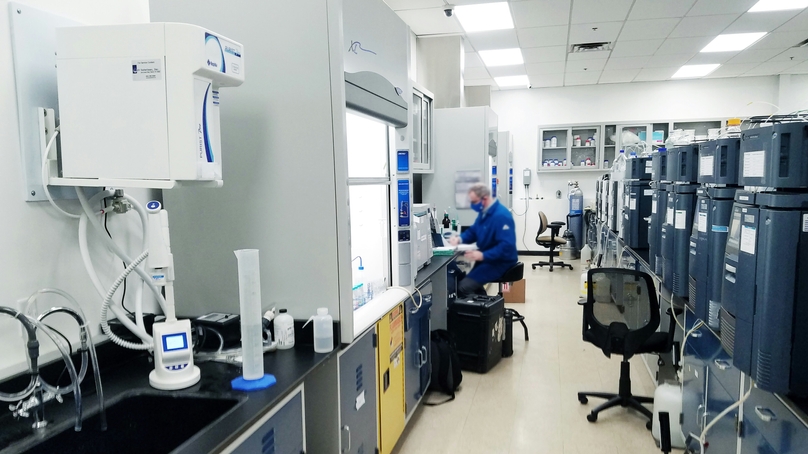As universities and research labs gear up for a new semester, the importance of efficient laboratory management becomes paramount. Implementing Laboratory Information Management Systems (LIMS) and Electronic Lab Notebooks (ELN) can significantly improve organization, research productivity, and compliance in academia.
The Need for Modern Lab Management Tools
Academic labs often face challenges related to data management, collaboration, and maintaining the integrity of scientific research. Traditional methods, such as using paper notebooks, can lead to inefficiencies and errors. Transitioning to digital solutions, like ELNs and LIMS, offers a streamlined approach to research data management.
Benefits of LIMS and ELN in Academic Labs
Centralized Data Management: LIMS solutions provide a centralized repository for all laboratory data, ensuring that researchers have easy access to information and can maintain a clear chain of custody for their samples.
Enhanced Collaboration: With the use of ELNs, researchers can easily share scientific data with their team, facilitating better communication and collaboration.
Improved Workflow Efficiency: Automation through LIMS and ELN systems helps eliminate bottlenecks, enabling labs to operate smoothly and focus on breakthroughs in scientific research.
Compliance and Integrity: Maintaining compliance with regulatory standards is crucial in academia. LIMS and ELNs help ensure the integrity of scientific research by providing accurate records and tracking.
Data Reuse and Management Practices: Using ELNs allows for easy reuse of data and templates, promoting best management practices across the lab.
Getting Started with LIMS and ELN
As the semester starts, labs should consider evaluating their current processes and identifying areas for improvement. Implementing lims and eln tools can lead to a lean lab makeover by optimizing every aspect of laboratory operations—from data collection to analysis.
Challenges of Laboratory Management at Semester Start
Manual Data Entry & Scattered Records in Academic Labs
Managing a lab at the start of a semester often involves dealing with manual data entry and scattered records. This can lead to significant inefficiencies in workflow, making it hard for lab managers to maintain accurate records.
Training New Students & Researchers with ELN
As new students and researchers join the academic environment, training them to use electronic laboratory notebooks (ELNs) is crucial. This tool can streamline the onboarding process and ensure that all members of the team are on the same page.
Maintaining Compliance and Reproducibility in Research
Compliance and reproducibility are critical in scientific research. Using a laboratory information management system (LIMS) can help ensure that all data is recorded accurately, thereby supporting the integrity of scientific research.
How LIMS Benefits Academic Labs
Centralized Sample Tracking with Lab Management Systems
Centralized sample tracking is one of the key benefits of implementing LIMS in academic labs. This system allows researchers to easily access and manage samples, improving overall laboratory efficiency.
Improved Inventory Management for Research Efficiency
With LIMS, labs can achieve improved inventory management. This tool helps keep track of supplies and reagents, reducing waste and enhancing productivity throughout the research process.
Data Accuracy for Research and Teaching
Data accuracy is essential for both research and teaching purposes. LIMS solutions provide reliable data management, which is vital for decision-making and educational outcomes.
How ELN Supports Academic Research & Teaching
Organized Experiment Documentation with Digital Tools
Using electronic lab notebooks (ELNs) allows for organized experiment documentation. This digital approach helps researchers maintain clear and accessible records of their scientific procedures.
Easy Collaboration Between Students and Faculty
ELNs facilitate easy collaboration between students and faculty members. This feature is particularly important in academic settings where teamwork is essential for success.
Digital Record Keeping for Reproducibility in Research
Digital record keeping with ELN ensures reproducibility in research. By capturing and managing data effectively, researchers can easily replicate experiments and verify results.
Back-to-Semester Use Cases for LIMS and ELN
Setting Up Teaching Labs Efficiently with Lab Systems
Efficient setup of teaching labs can be achieved through the use of lab management systems. These systems streamline the preparation process, making it easier for educators to focus on teaching.
Streamlining Research Projects with Multiple Student Contributors
Collaboration tools such as LIMS and ELNs are ideal for streamlining research projects that involve multiple student contributors. This ensures that everyone is informed and can access critical data.
Reducing Wasted Reagents and Redundant Experiments
By implementing LIMS and ELNs, labs can significantly reduce wasted reagents and redundant experiments. This not only conserves resources but also enhances the overall efficiency of academic research.
CASE STUDY: Wisconsin State’s Lab of Hygiene enhances efficiency with Genemod
The Wisconsin State Laboratory of Hygiene (WSLH), a major public health lab specializing in virology, bacteriology, environmental health, and toxicology, implemented Genemod’s cloud-based LIMS to modernize its operations and handle increasing demands for efficiency and data accuracy. Check out for more details here: WSLH - Genemod Case Stsudy
Academic Lab Management with LIMS & ELN
As universities and research labs gear up for a new semester, it’s crucial to implement effective management systems that enhance productivity and streamline workflows. The integration of LIMS (Laboratory Information Management Systems) and ELN (Electronic Lab Notebooks) can transform academic laboratories by improving organization and compliance in research.
Why LIMS and ELN Are Essential for Academic Labs
With increasing demands on researchers, adopting an effective laboratory information management system is vital. LIMS solutions offer centralized data management, which enhances the integrity of scientific research and ensures that all team members have access to the data they need. This is particularly important as the scientific process becomes more complex, requiring efficient management of various types of data.
By using electronic lab notebooks, researchers can capture and manage data digitally, reducing the reliance on paper notebooks. This shift not only improves efficiency but also facilitates collaboration among academic teams. ELNs enable easy sharing of research records and data files, allowing for more streamlined communication and a reduction in bottlenecks to breakthroughs.
Boosting Research Productivity
Implementing LIMS and ELN can significantly enhance research productivity. These systems automate many laboratory management practices, freeing up time for researchers to focus on their scientific inquiries. For instance, LIMS can manage data collection and automate workflows associated with instrumentation and assay processes, leading to a more efficient scientific data lifecycle.
Furthermore, using a digital format for research records ensures that data is easily accessible and can be reused across different projects. This is particularly beneficial for students and lab managers who must navigate a wide range of practices in academia.
Ensuring Compliance and Data Integrity
Compliance is a significant concern in academic research. LIMS and ELNs help maintain a chain of custody for all data, ensuring that the integrity of scientific research is upheld. By providing a comprehensive repository for laboratory data, these systems support standard operating procedures and facilitate audits.
Moreover, the use of open-source software for LIMS and ELNs can further enhance data management practices, allowing institutions to customize their systems according to specific needs while maintaining compliance with regulatory standards.
Conclusion
As the new semester approaches, academic labs must consider the advantages of implementing LIMS and ELNs. These tools not only streamline laboratory management but also enhance collaboration, improve research productivity, and ensure compliance with data management regulations. By investing in these systems, universities and research labs can set the stage for a successful academic year.















